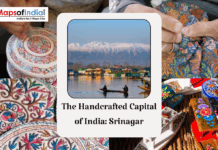When a particular group oppresses a person in intolerance, discrimination, slavery or takes away the basics fulfilling requirements of a human being, then the concept of Human Rights comes into the picture.
Human rights are the standards that allow people to live with dignity, equality, freedom, justice, and peace and help protect individuals from others’ severe political and legal actions. They are the fundamental rights entitled to every citizen of their respective country.
It ensures dignity and shields vulnerable groups, minorities from abuses. It empowers people to speak up against any wrongdoings in society. It comprises political, economic, social, and cultural rights.
According to the United Nations, “Human Rights is a cross-cutting theme in all UN policies and programmes in the key areas of peace and security, development, humanitarian assistance, and economic and social affairs.”
Examples include the right to development, which primarily refers to Sustainable Development Goals, the freedom to food, labour rights defined and safeguarded by the International Labour Organization, gender equality, led by UN Women, children’s rights, indigenous peoples and specially-abled persons. Human Rights Day is celebrated every year on December 10.
It is in effect every time and acts as a safeguard to every person equally without biases and prejudices like religion, race, sex, political opinion or another status.
The United Nations undertook the Universal Declaration of Human Rights in 1948 post the second world war, which stated the fundamental rights of all people and declared them a mutual principle of achievement for all countries across the globe.
Since then, over two dozen global treaties, including regional agreements, have offered a legal foundation for human rights ideals. When a government gives its consent to one of the treaties, it adopts legal standards to maintain human rights in the respective country.
Economic, social, and cultural rights consist of the right to work, the right to necessities such as sufficient food and water, the right to housing, clean water, sanitation, and education. Documents such as the International Covenant on Economic, Social, and Cultural Rights were set up in 1976, safeguarding these rights. Also, Conventions like the Convention on the Rights of the Child protect the economic, social, and cultural rights of particular groups worldwide.
Universal Declaration of Human Rights says that the people must be allowed to participate freely in civil and political life without confronting repression or discrimination such as slavery or torture.
The International Covenant on Civil and Political Rights highlights the right to privacy, which is flouted by meddling on a person’s sexual life or personal data, the right to asylum, which is violated by deporting someone to a country where their lives are at stake. In addition, it includes the right to a fair trial with due diligence and the right to life, which is flouted by actions such as death by neglect, torture and use of forces.
Under provisions of the Protection of Human Rights Act, 1993 (later amended in 2006), Paris Principles (October 1991), an independent statutory named National Human Rights Commission (NHRC) was constituted on October 12, 1993. It monitors the violations related to human rights in terms of life, liberty, equality and dignity of the individual as guaranteed by the Indian Constitution or embodied in the international covenants and put in effect by the courts in India.




